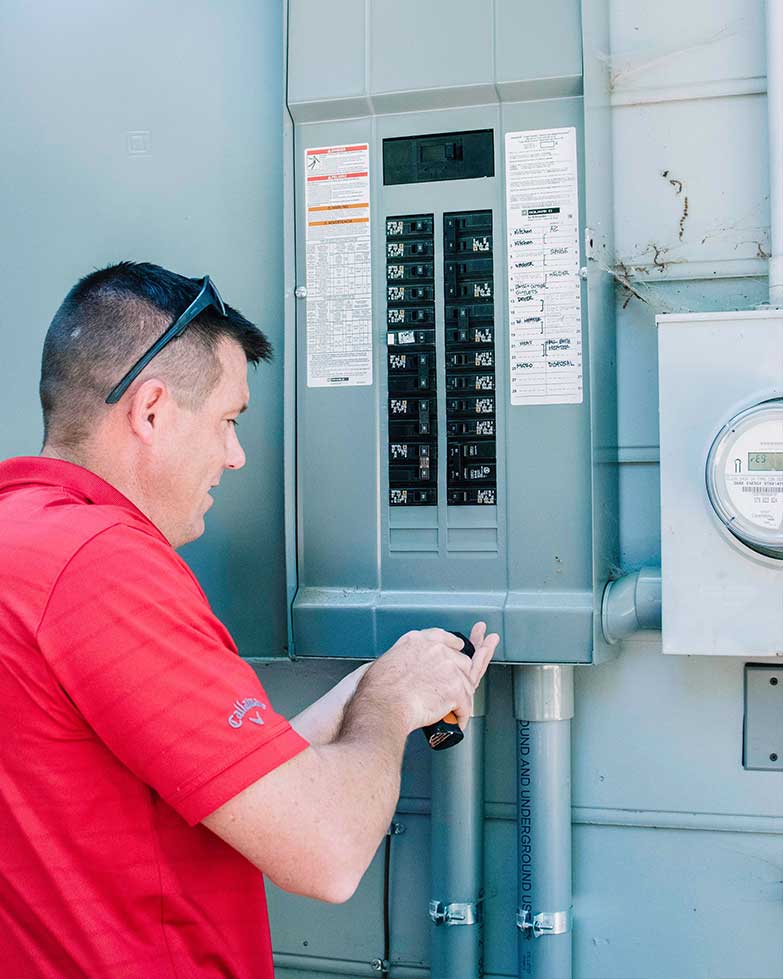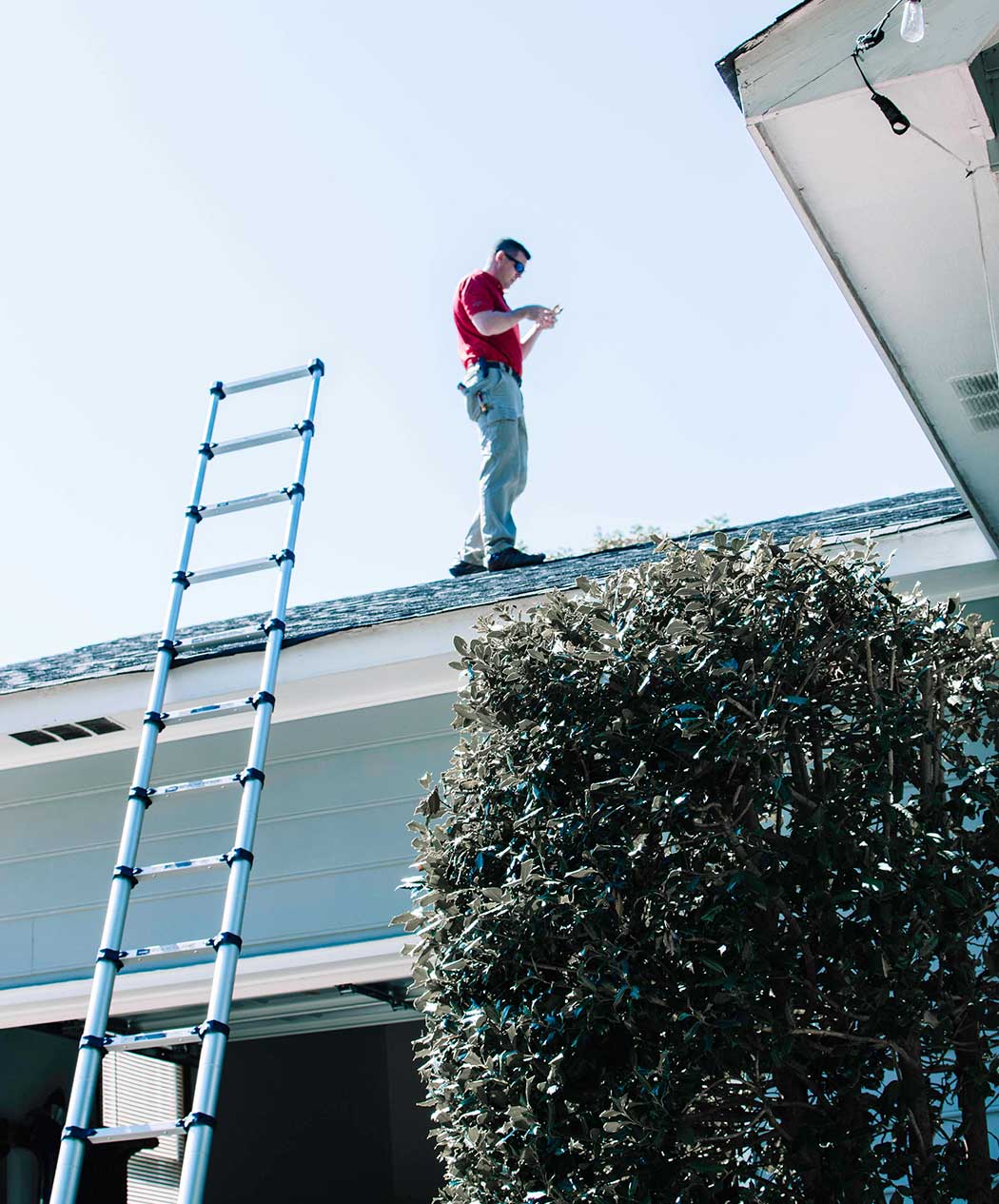
If you’re selling your house, shortly after going under contract your buyer will schedule a home inspection.
Wondering how to prepare for the home inspection?
During the process, the inspector will go over the components of your home in minute detail. They’ll write a report and make note of anything that appears unsafe, in need of repair or replacement, or not up to your state’s standards.
Completing a preparation checklist before the inspector arrives is a great way to ensure that no preventable (or easily fixable) problem is included in the inspection report.
A smaller number of issues on the inspection report will give your buyer peace of mind, which helps your transaction close smoothly.
You’ll also help the inspector by making sure they can access all of the areas they need to inspect.
How to Prepare for a Home Inspection Checklist


1. Clean and Declutter
Your realtor likely helped you stage your home for the listing photos and showings. After going under contract, it’s understandably tempting to relax on the 24/7 tidiness.
Rest assured, the home inspector is not going to include a cleanliness rating on the inspection report. However, a clean and organized space gives the inspector a hint that you have maintained your home well.
In addition, be sure to clear and declutter spaces like closets and the attic. These are common access points for the furnace, air conditioning unit, hot water heater, and breaker box. If you have an attic, make sure the home inspector can reach the point of entry. Home inspectors need to be able to reach these components in order to complete a thorough inspection.
2. Home Maintenance
Having recently completed home maintenance ensures that something preventable, like a dirty furnace filter or non-functioning carbon monoxide detector, will not show up as a problem area on the inspection report.
Some home maintenance to consider:
- Replace the furnace filter
- Test all light switches and replace any burnt out lightbulbs
- Test your carbon monoxide detector alarm
- Replace any old batteries in your smoke detectors
- Be sure that you have a fire extinguisher
- If you’ve been struggling with a bug problem, have an exterminator treat it before the home inspection
- Re-caulk any worn or peeling caulk around your bathtubs and sinks
- Check for sink and bathtub drain clogs and fix them
- Sweep debris off your roof and clean out the gutters
- If you see any tree branches or leaves touching the roof of your house, trim them back
- Make sure your breaker box has readable labels and if not, replace the labels
3. Complete Minor Repairs
If there’s a minor problem with your home that you already know about and can repair before the home inspection – do it.
The home inspection is designed to make buyers aware of existing and potential problems with the property they are purchasing.
For that reason, completing a few simple repairs prior to the inspection helps make sure nothing you can easily fix is included in the inspection report.
Legally, you’re required to disclose any known defects so you may as well eliminate some of the minor problems in advance! See our blog on when pulling a permit is required.
A few possible problems to check for and repair include:
- Cracked windows
- Malfunctioning window seals or locks
- Damaged or missing door seals
- Torn or missing window screens
- Compressed or missing attic insulation
- Missing vapor barrier (plastic ground cover) in the crawlspace
- Toilets that run constantly, intermittently, or for a long time after flushing
- Broken appliances (eg. dishwasher not working)
4. Last-Minute Steps
Plan to leave early and be away from your house during the entire inspection. Ideally, the only people that should be present during the inspection are the inspector, the buyer(s), and the buyer’s realtor.
If possible, make arrangements to bring any pets with you or drop them off at friend or family member’s house. As a last resort, you can secure them in a safe kennel instead. This eliminates the chance of your pets getting in the way of the inspection, escaping outside, or harming the inspector.
In the states that we serve, we are required to run a full cycle on the dishwasher. So, load up the dishwasher with dirty dishes and leave a soap tablet in the dispenser and the inspector will do the dishes for you!
Leave shed and outbuilding doors unlocked, or or provide marked keys in a pre-determined place for the home inspector to use. The same holds true for any other locked areas in the home, such as an exterior closet or crawlspace door.
Be sure all of your utilities are on, as the inspector cannot inspect what is not operating.
If you have a well and/or septic tank, it can help the home inspector if you leave a diagram of where to find them.
Leaving out paperwork for all maintenance, repairs, and home insurance claims gives the home inspector context for any problems they might uncover.
5. Go Above and Beyond
If you’re not confident in your ability to identify and complete any necessary maintenance and repairs before the home inspection – don’t worry.
You can go above and beyond completing our how to prepare for a home inspection checklist by scheduling a pre-listing inspection for your peace of mind.
What’s that?
In a pre-listing inspection, you get to discover all of the problem areas in your home and address them before you even put it on the market. Then, when you do go under contract, you’ll have the assurance that your home is in tip top shape and no nasty surprises will surface during the inspection the buyer schedules.

